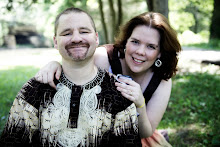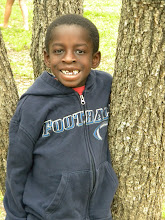Learning about Myself
 Today I was interviewed and asked some pretty tough questions. It was a work-related interview, and I didn't know what questions would be asked beforehand. I find it interesting to answer sort of deep questions on the spot, because I learn things about myself. I don't think anybody else cares about this stuff. This post is more of a journal-type thing. Maybe one day I'll look back and find it interesting to see how I felt back when I was 35, 4 years into this job.
Today I was interviewed and asked some pretty tough questions. It was a work-related interview, and I didn't know what questions would be asked beforehand. I find it interesting to answer sort of deep questions on the spot, because I learn things about myself. I don't think anybody else cares about this stuff. This post is more of a journal-type thing. Maybe one day I'll look back and find it interesting to see how I felt back when I was 35, 4 years into this job.What is the thing that keeps you up at night? What makes you lose sleep?
Honestly, I really don't lose sleep over very much at this point, but that wasn't the point of the question. What are my biggest worries? Corruption. I think a lot about what could happen in any region in Ghana on the turn of a dime if a single new person is introduced into a currently-working adoption system in the region. One new social welfare officer who is corrupt could mean the end of adoptions in that region (for our program). One corrupt nut-job added to the mix could mean the literal death of some children who would have otherwise been adopted into loving families. That's what keeps me up at night, because I have no control over it.
What do you like best about working with adoptive families?
Educating. I'm sure it's not obvious at all (sarcasm) that I get a high from teaching people. Teaching is what I do. It's my thing--whether it's music or adoption or anything else makes no difference. I am so thankful for the experiences the Lord has given me over the last 10 years, so that hopefully I can pass that knowledge onto others and save them from making some of the same mistakes I did!
What do you like least about working with adoptive families?
This answer surprised me, but it is what came to mind. I really hate it when one of "my" adoptive families goes to Ghana and acts like an Ugly American. I feel like "my" families receive enough educational material and advice from me that there really should be no reason for them to go there and act like the world revolves around them...like Ghana should become America during their stay. I feel embarrassed when this happens--like I have failed the family and our entire program. I feel that I did not do my job well if one of "my" families is "ugly" in Ghana, and that ticks me off!
How do you know whether the program is successful? [Not exact wording but that was the jist.]
I was pretty stumped on this one. I don't have tables and graphs that can measure success, so the question is, what do I value? Is it number of adoptions? Is it customer satisfaction? Is it something else? In the end, I fumbled over my words but I hope I conveyed this: The program feels successful to me if we are making a difference in the lives of kids in Ghana. Are we giving kids families or helping them keep the ones they already have and doing that at the greatest level possible? If so, I feel that the program is successful. A few years ago I worried about our numbers going up. I wanted to do more adoptions each year. Now, I don't necessarily look at adoption as the goal. Helping kids keep *OR* get families is the goal--whichever way makes most sense for each individual child. The other measure of success for me is whether "my" families feel that I have served them well.
How do you know if your customers are satisfied? [Again, it was different wording, but I can't recall what.]
Hmm... how do I know? I haven't exactly received costumer service surveys (although that would be nice)! I hear about the families that aren't happy, that's for sure; thankfully I don't think that is too many. In the end, I said that the biggest indicator of customer satisfaction is the calls/emails I get indicating that the person "heard" good things about me/AAI's Ghana program. I know if people are taking time out of their day to tell someone else about us, the family must have been satisfied with their experience. It's a good feeling.
There was one question I couldn't answer. The person asked me what was one wow moment that came to mind, that really illustrated to me what AAI was all about (not AAI Ghana, but AAI). I was totally stumped. If you're an AAI family and something comes to mind for you, I'd love to hear your answer! Maybe there is a particular child/family story, or interaction with staff, or, ????? I could think of lots of things that have inspired me during my time with AAI, but came up blank when ask for one particular thing that says what AAI is all about. I'm heading to bed now, and will give that some more thought!
Anita










0 comments:
Post a Comment